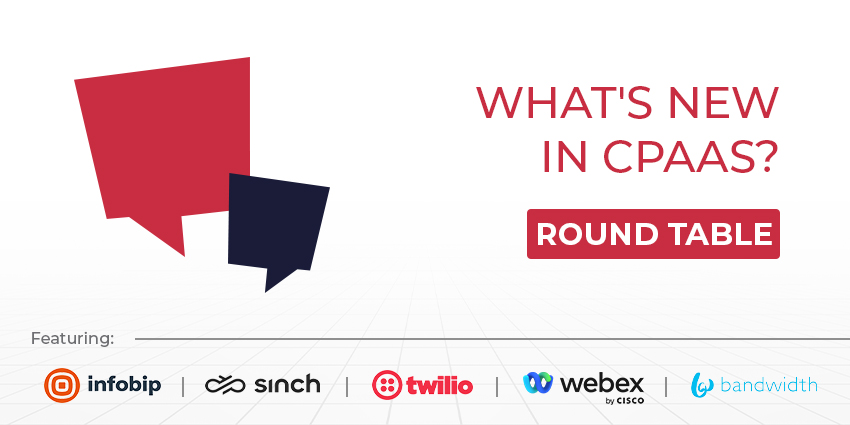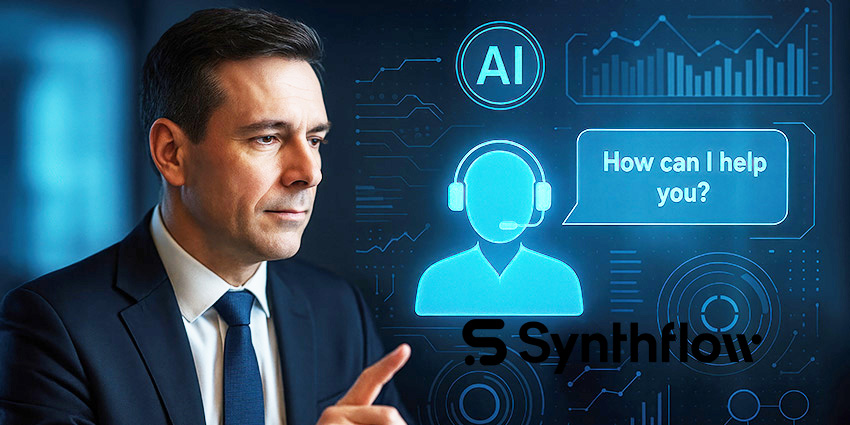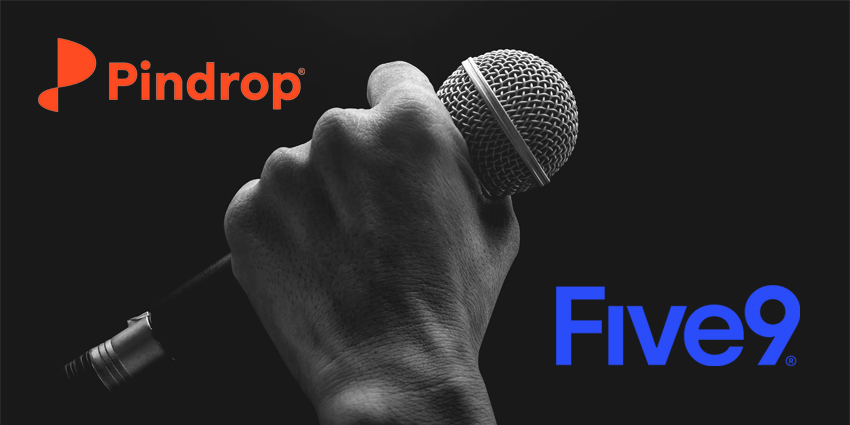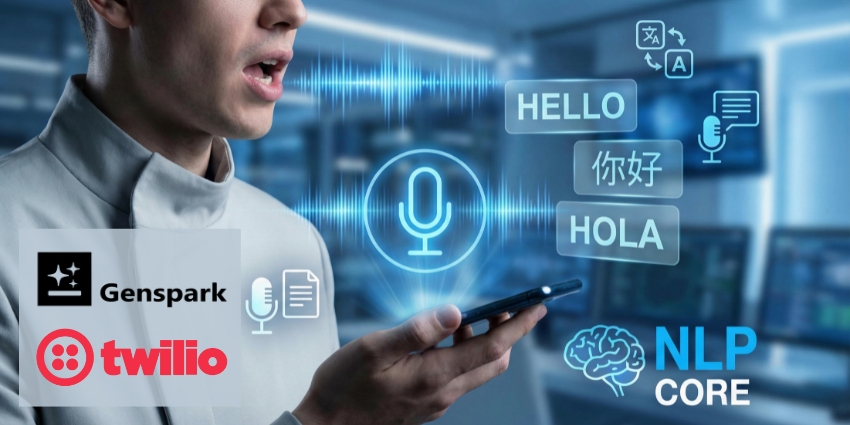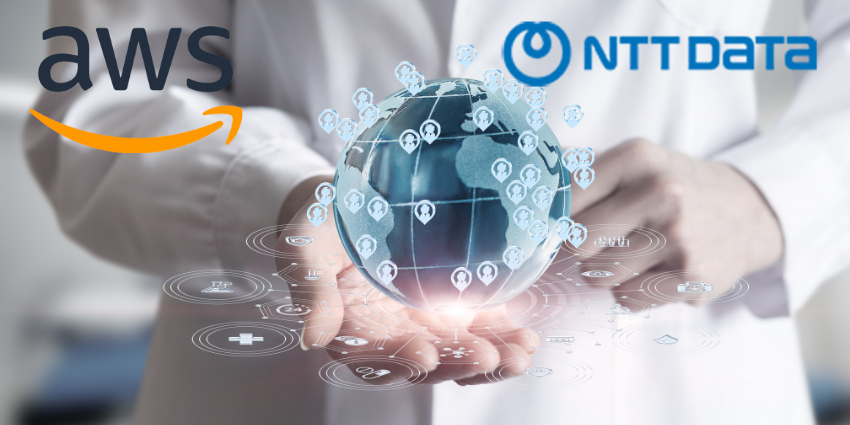CPaaS platforms are shifting from a nice-to-have to a must-have.
Indeed, Gartner research suggests that – by 2028 – 90 percent of businesses will leverage CPaaS platforms. That’s up from just 30 percent in 2022.
Nevertheless, no two platforms are the same, and the most prominent players in CPaaS have different visions for the future.
That’s evident in the responses of spokespeople from five prominent CPaaS providers when asked: What’s new in CPaaS?
These spokespeople are:
- Sam Richardson, Executive Engagement Director, EMEA & APJ at Twilio
- Sudarshan Dharmapuri, VP, Products, Webex Customer Experience Solutions at Cisco
- James Stokes, Head of Enterprise, UK & Nordics at Infobip
- Robert Gerstmann, Chief Evangelist & Co-Founder at Sinch
- John Bell, Chief Product Officer at Bandwidth
Below, they touch upon the latest CPaaS market trends and capabilities before teasing: what comes next?
CPaaS Market Trends
The Channel Mix Expands Further
Richardson: Brands are under pressure to meet their customers on whatever channels they’re comfortable with, whether that’s traditional channels – like voice, email, and SMS – or emerging channels, like RCS, WhatsApp, or Viber.
Yet, these brands must also understand their customers deeply, leveraging data and AI to deliver tailored experiences that meet heightened expectations.
This involves analyzing customer preferences, past interactions, and behaviors to create communications that resonate with each individual.
These trends and expectations are reshaping the CPaaS market, as there is a much wider array of different types of data, channels, and platforms that any CPaaS technology needs to integrate.
Brands that successfully integrate multiple channels, maintain consistency, and leverage data for personalization will be better positioned to meet the evolving demands of consumers.
AI-Powered Automation
Dharmapuri: The most significant trend impacting the CPaaS market today is AI-powered automation.
That involves delivering conversational, multimodal experiences that fulfill customer requests while enabling AI-driven personalization.
Yet, it also involves solving queries before the customer makes contact, by tracking signals in other systems to trigger proactive alerts.
Additionally, organizations must be confident that the AI automation they deploy is secure, and end-customers can trust the automation’s outcomes, which makes in-built AI security and safety key considerations.
The Rise of Agentic and Generative AI
Stokes: One of the biggest trends is the rise of agentic AI paired with generative AI (GenAI) to create smarter, more proactive conversational experiences across messaging channels.
It’s no longer just about responding to customers; it’s about having smart virtual assistants or chatbots that can take initiative, plan, and carry out tasks to move conversations and business goals forward.
Agentic AI is a step beyond traditional bots or GenAI.
While GenAI helps create human-like, personalized responses, agentic AI adds a whole new layer, making decisions, managing multi-step workflows, and adapting in real time without human input.
This is pushing businesses to rethink engagement. Instead of being present on every channel, they can now deliver personalized conversational journeys at scale.
RCS Adoption Spikes
Gerstmann: One major trend shaping the CPaaS market today is the growing adoption of Rich Communication Services (RCS).
RCS is a next-generation messaging protocol that adds richer, more secure, and interactive features to standard messaging.
With Apple supporting RCS, over a billion iOS devices are joining the ecosystem, allowing brands to reach the entire mobile market. RCS makes messaging feel more like using an app.
Brands can send video, audio, images, and interactive buttons, all within the chat.
Sinch even reports that 74 percent of users are more likely to engage with a brand through RCS, and 77 percent prefer verified messages, which build trust and credibility.
We’re on the edge of a significant shift: just as SMS became universal, and RCS is on track to reach full global penetration – that’s five to six billion unique users.
For brands, this opens up a huge opportunity to connect with customers in a much more dynamic and trusted way.
Voice Agents Come to the Fore
Bell: The explosion of highly specialized AI voice agents is driving the next wave of AI transformation.
Given the many industry-specific use cases and need for specialization, Bandwidth believes there won’t be a single winner in this category.
That’s why Bandwidth’s strategy is to extend its open technology approach, allowing enterprises to integrate the AI voice agents of their choice to experiment and innovate toward their customer experience goals.
Our AIBridge solution offers flexible deployment paths to help enterprises get up and running quickly.
At the same time, our network delivers the high fidelity, low latency, rich data, and intelligent routing that AI voice agents require to function properly.
Rather than locking enterprises into a walled garden, this open approach gives the flexibility to adapt as the AI voice ecosystem evolves and find the right mix of technologies that best support the CX outcomes they want to achieve.
New CPaaS Capabilities
ConversationRelay
Richardson: With AI-powered data analysis, voice recognition technologies have seen remarkable improvements.
Built to integrate effortlessly with existing AI capabilities, Twilio’s ConversationRelay, alongside Natural Language Processing (NLP), helps create interactions where customers feel understood and supported.
ConversationRelay works as the interface between a caller’s voice input and an AI-powered bot, while NLP extracts meaningful insights from the cadence and tone of a human caller using Speech-to-Text (STT) and Text-to-Speech (TTS) with low latency.
Together, these innovations create fluid, efficient voice interactions, reducing wait times, improving customer satisfaction, and enabling scalable, intelligent communication solutions.
It marks a significant leap forward in enhancing business-to-customer engagement.
Webex AI Agents
Dharmapuri: The introduction of Webex AI Agent is a significant new capability for Cisco customers.
The Webex AI Agent answers inquiries and fulfills customer intents – all while delivering personalized, human-like conversational experiences.
AI Agent Studio – AI Agent’s design tool capability – offers a platform for users to build, preview, deploy, manage, and analyze autonomous and scripted AI agents for digital and voice channels tailored to specific business needs.
By integrating AI Agent and AI Agent Studio, organizations can improve customer engagement and gain valuable insights from interactions, driving strategic decision-making and fostering innovation in delivering great customer experiences.
AI agents have significant business benefits, such as the ability to scale contact center operations without significant cost overheads. This allows agents to focus on higher-value interactions instead of mundane tasks.
RCS
The biggest change impacting the CPaaS landscape has been the rise of RCS, especially following Apple’s adoption.
Due to this trend, Infobip has furthered its collaboration with clients such as Telekom Deutschland and nextbike.
For Telekom Deutschland, Infobip used RCS to promote a Spotify Premium trial.
By blending rich media and personalized interactions, the experience included tactical transitions to live agents and resulted in a 120 percent increase in conversions.
Meanwhile, nextbike leveraged RCS for Business Messaging to improve customer communication and send visually rich and interactive transactional messages, resulting in a 50 percent reduction in response times.
These partnerships highlight how RCS – delivered via a CPaaS partner – can deliver personalized, secure, and interactive experiences at scale across industries.
New Network APIs
Gerstmann: Sinch’s partnership with the Ericsson-led Aduna network API joint venture. This brings powerful network-level capabilities – like SIM Swap and Number Verify APIs – directly into the Sinch platform.
For enterprise customers, that means stronger, real-time user authentication and far better fraud prevention.
We’re also using open-source CAMARA APIs, which keep us aligned with global industry standards and make life easier for developers by reducing integration complexity.
But beyond the tech, this partnership positions Sinch at the center of a new ecosystem where telcos and enterprises can collaborate more closely.
Strategically, it reinforces Sinch’s role as a bridge, connecting telcos with developers and enterprises, and helping to accelerate innovation across the board.
Number Reputation Management
Bell: Bandwidth recently launched Number Reputation Management, a solution designed to help enterprises combat the growing problem of legitimate voice calls being incorrectly labeled as spam.
While nobody likes unwanted robocalls or spam, unfortunately, many customers report that their critical outbound calls – such as appointment reminders, payment confirmations, contact center callbacks, or fraud alerts – are going unanswered, resulting in missed connections and lost revenue.
Number Reputation Management offers an all-in-one solution that gives enterprises visibility and control over their outbound calling reputation.
It leverages Bandwidth’s unique position as a network owner and operator to analyze call performance and other data across major mobile carriers, operating system platforms, and call-blocking apps to rapidly identify misleading spam labels for remediation.
Bandwidth can help enterprises engage with their customers, reduce inefficiencies, and safeguard brand trust by improving answer rates for wanted calls and reducing false spam tags.
What Comes Next?
Enriched Customer Communications
Richardson: Communications that are enriched with customer context are poised to become the standard in the CPaaS market.
CPaaS platforms will not only facilitate seamless interactions across multiple channels, but we’ll start to see greater prediction and recommendation capabilities brought in.
AI will be at the forefront of this transformation. By leveraging customer data, CPaaS platforms will generate highly personalised responses and be able to provide human customer service agents with comprehensive details and context around every customer.
In turn, this will help them deliver more efficient and effective service and enhance overall customer satisfaction.

Twilio’s integration of AI within Segment, its CDP software, exemplifies this trend. Twilio enables businesses to deliver more personalised and responsive customer interactions by unifying customer data across various touchpoints.
This integration is a significant step towards achieving the enriched, context-driven communications that will define the future of the CPaaS market.
As CPaaS technology continues to evolve, we can expect even more sophisticated AI-driven solutions that will further enhance the ability to provide 1:1 customer interactions at scale, as well as predict their future possible needs.
Comprehensive Customer Experience Ecosystems
Dharmapuri: The future of the CPaaS market is set to evolve into a comprehensive customer experience (CX) ecosystem (i.e., a single, centralized CX platform).
As CPaaS platforms continue to integrate advanced technologies, multimodal experiences that span across the customer lifecycle will become a central focus.
The simultaneous trends of channels becoming richer and AI models becoming multi-modal unlock tremendous innovation in CX.
These experiences encompass various communication modalities, including voice, video, and messaging, creating seamless, integrated interactions with enterprises’ backend systems.

Businesses will increasingly rely on CPaaS to securely deliver proactive, personalized and engaging customer journeys, leveraging AI and real-time data analytics to anticipate and meet customer needs with accelerated time-to-market.
This evolution will enable companies to build more meaningful relationships with their customers, driving loyalty and satisfaction.
As CPaaS transitions to CX, expect a shift towards platforms that offer not just communication capabilities but also holistic solutions for managing and enhancing customer experiences across all touchpoints more effectively, efficiently, and consistently.
Deeper System Integrations
Stokes: The CPaaS market is evolving fast, driven by the demand for richer, more conversational customer experiences.
Businesses are shifting from basic SMS and voice to interactive channels like WhatsApp, RCS, and Apple Business Messages, enabling seamless and richer engagement across the entire customer journey.
Gen AI is playing a major role, enhancing chatbots, automating interactions, and delivering personalized support at scale.

Infobip is also seeing convergence with tools like customer data platforms (CDPs) and CCaaS, creating more integrated, data-driven communication strategies.
CPaaS will no longer be just a toolkit for developers; it will become a strategic layer in the customer experience stack, enabling smarter and richer interactions at scale.
With solutions like CPaaS X, Infobip is helping businesses build these next-gen experiences faster and with more flexibility, making CPaaS a central pillar of digital transformation and customer engagement.
More Collaboration between CPaaS Players and Telcos
Gerstmann: The CPaaS market is on a strong growth path – set to double to $58 billion by 2028 – but where it’s heading is just as important as how fast it’s growing.

Sinch sees a shift toward true collaboration between CPaaS players and telcos, where working together unlocks new possibilities.
RCS is set to be the renaissance of messaging, but its success hinges on operator openness and fair, consistent pricing. If done right, RCS can become the next universal channel, just like SMS.
Looking ahead, the same qualities that have defined CPaaS – flexibility, innovation, and an entrepreneurial spirit – will need to stay front and center to keep pushing boundaries.
Increased Flexibility to Integrate Multiple AI Voice Tools
Bell: AI voice agents aren’t just another technological advancement – they’re a revolution in how enterprises interact with their customers.
Enterprises will need flexibility to integrate multiple AI voice tools as the technology choices and their needs evolve.
That’s why we’re extending our open, vendor-agnostic strategy that has already served our customers well, and we power all the leaders in CCaaS and UCaaS.

Giving enterprises the freedom to choose the AI voice agents that best support their CX goals will enable them to achieve better business outcomes.
Bandwidth’s Maestro and AIBridge solutions simplify deployment, while its owned-and-operated network delivers the performance these applications demand.
CPaaS providers that can offer architectural flexibility, quality of delivery, and open integrations, without locking customers into proprietary ecosystems, will be best positioned to lead in the future.
Miss out on our previous CX Today roundtable? Check it out here: The New Best Practices for Contact Center Workforce Engagement Management
